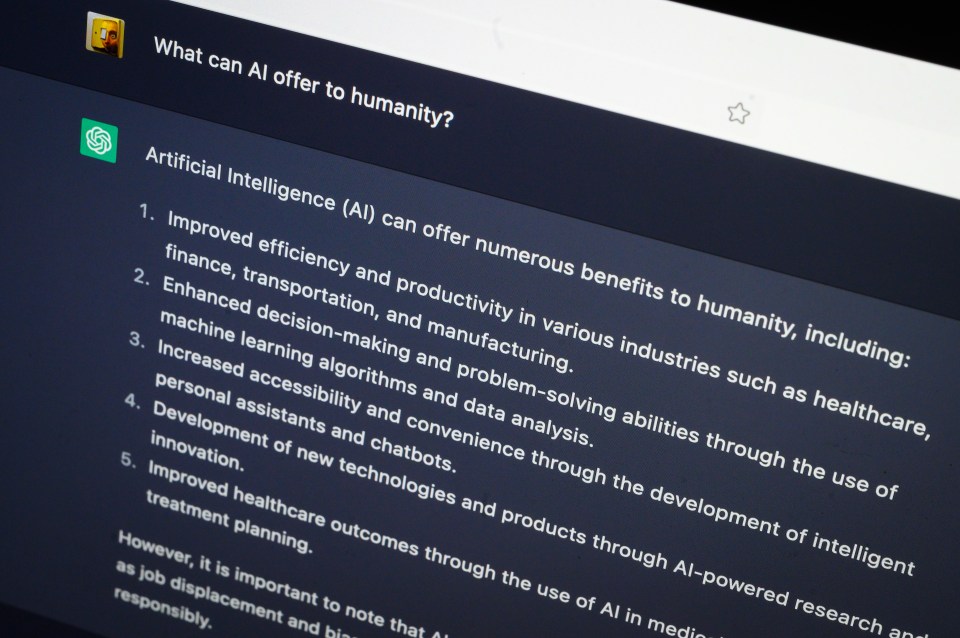Artificial intelligence is bringing about a revolution that the UK shouldn’t try to resist

Artificial intelligence is creating a divide between life as it was and life as it will be. UK businesses and leaders shouldn’t make the common mistake of refraining from it; they should embrace it, writes Chris Hirst
AI is going to change my life. And it’s going to change yours. The problem is we don’t know how. And beware most of all people who claim they do. Change is a constant: as human beings, we learn to live with it if not always enjoy it. However, sometimes we hit a discontinuity, a big moment of change where the behaviours, culture, processes and assumptions that have served to this point are no longer fit for purpose.
Looking backwards these moments are easy to see: horse to internal combustion; steam to electric; propeller to jet; celluloid to digital; vacuum to silicon; own to subscribe. Each represents a sweeping away not just of industries but whole cultures and ways of life. And of course the rapid development and adoption of their replacements.
For many, the greatest hurdle, at least initially, is in overcoming the cognitive dissonance of such a moment: outwardly all might seem as it did before, yet clouds gather on a horizon that had previously been sun-bleached blue. Perhaps, many silently hope, it will blow past.
In 2009, I worked with Nokia, then the world’s largest and most successful mobile phone manufacturer. It’s easy now to forget they were the poster child of the mobile revolution, a genuinely loved and aspirational brand. In one meeting we raised with them the possible threat of the touchscreen Apple iPhone – which was launched eighteen months earlier, then a super-premium product. Though Nokia had been one of the first to develop touchscreen technology, they dismissed it as a niche. “We sell more handsets in a day than they do in a year”, they replied to us. The internal inertia – cultural, contextual and financial – was just too great to overcome.
Today we stand in front of a moment not of evolution, but impending revolution. Our only certainty is that the past can no longer serve as our guide.
As business leaders we cannot wait for the wave to arrive and then hope to respond. We must act now. Revolutionary change demands that businesses disrupt themselves, or allow others to do it to them. This is easy to say, but difficult to do; the inertia is real, the pressure of quarterly reporting a powerful disincentive. The challenges are obvious and immediate, yet to delay risks being swept away.
Nokia knew of Apple, Kodak knew of digital photography, the all-powerful British motorcycle industry knew the Japanese also made motorbikes. “Wait and see” may sometimes be a rational and even effective strategy in a business-as-usual world. But it’s dangerous in the midst of a revolution.
My former employer, communications and advertising company WPP, have just announced a partnership with the AI chip specialist Invidia to accelerate their capabilities in generative AI. If it’s more than a press release, it’s smart. Generative AI is on the verge of upending the creative industries, a revolution that may be more easily measured in months than years. The looming arms race between AI enabled punters and AI powered bookies is going to be an interesting watch. Insert your own examples here – it takes only a moment’s thought.
With Rishi Sunak announcing the UK will host a major AI summit in autumn, our political class is also signalling they understand the extent of this change and they want to play a leading role in shaping it. This will give confidence to businesses who are looking at where to locate and invest in AI – just look at US tech giant Palantir choosing to base its headquarters for AI development in the UK. This country is shaping up to be the place where a lot of the AI developments occur – one more reason for companies to adapt, and quickly.
A decision is, by definition, a choice made when uncertain of the outcome. Error and failure are therefore not simply occupational hazards, but prerequisites of success. Leading change can be considered as the art of the possible, or at least understanding the boundary between those factors you can control and those you cannot. There is much you can do if you’re focussed and action-oriented – and you can do it right now. If you’re going to succeed, and some will thrive, finding answers to the AI question has to be close to the top of your to-do list.